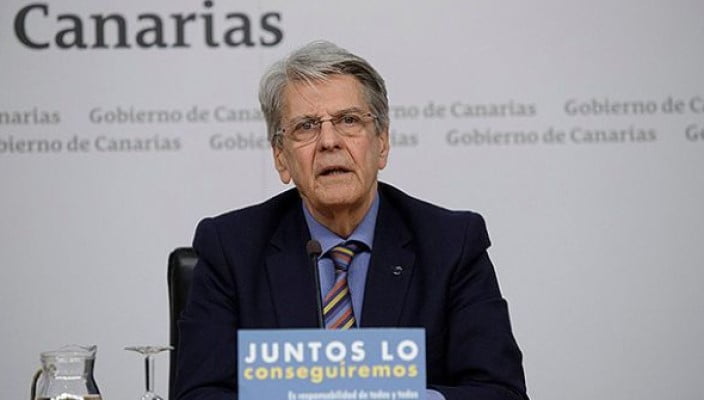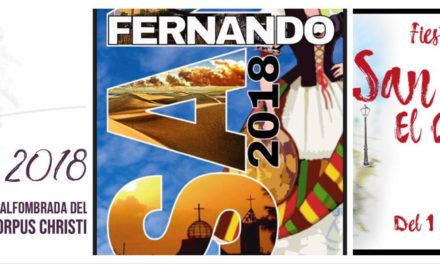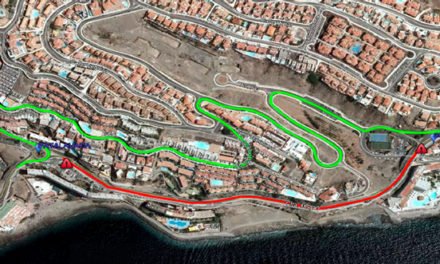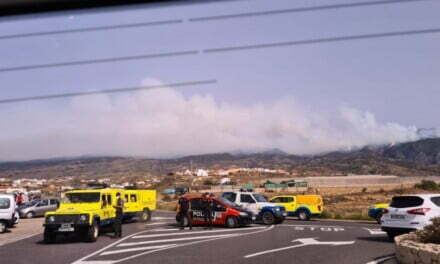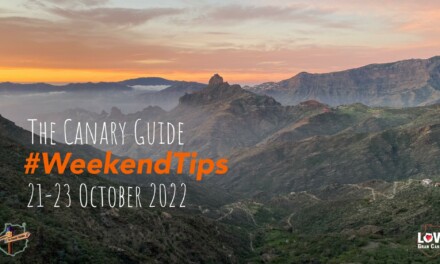The Canary Islands Governing Council, in its session on Thursday, December 3, approved a set of specific Christmas restrictions measures for the Canary Islands this year, which aim to contain the spread and transmission of the SARS-CoV-2 virus, which causes the COVID-19 disease.
The maximum number of people at any social or family gatherings that take place, whether in spaces for public or private use, enclosed or outdoor, will be limited to six people, except if they all live together, meaning cohabitants, residing at the same address. A maximum of 10 people can attend a family gathering with relatives to celebrate Christmas lunch or dinners on December 24, 25 and 31 and January 1 and 6, unless they are cohabitants. In all cases, children aged 0-6 years are excluded from being counted in these maximum numbers.
The Christmas restrictions recommendation is that gatherings be made up of members who belong to the same coexistence group or do not exceed two groups of coexistence, in which special care must be taken with people in vulnerable situations.
The measures approved on Thursday will apply following the day after their publication in the Official Gazette of the Canary Islands (BOC) and until Sunday, January 10, without prejudice to other more restrictive measures that are in force or that could be adopted on certain islands, such as a consequence of changing epidemiological situations, evaluated weekly by the General Directorate of Public Health of the Canary Islands Health Service and published on the Canary Islands Government Covid Portal website (www.gobiernodecanarias.org/principal/coronavirus/semaforo).
Movement restricted at night
Christmas restrictions on freedom of movement at night, will be between 1:00 a.m. and 6:00 a.m. from December 23, 2020 through to January 10, 2021, except for essential activities included in article 5 of Royal Decree 926/2020, of October 25, which declared the second state of emergency to contain the spread of infections caused by SARS-CoV-2. On the nights of December 24 to 25 and from December 31 to January 1, the restrictions are between 1.30am until 6.00am.
Essential activities include the acquisition of medicines, health products and other essential goods; assistance to health centers, services and establishments; assistance to veterinary care centers for emergency reasons; the fulfillment of work, professional, business, institutional or legal obligations; the return to the place of habitual residence after carrying out some of the activities indicated above, or the assistance and care of the elderly, minors, dependents, people with disabilities or especially vulnerable people, among others.
Specific measures
The agreement includes specific Christmas restrictions measures for the hotel and restaurant industry, such as the complete closure of establishments before midnight (except on any islands with greater restrictions due to their pandemic situation), the maximum occupancy per table can be no more than six people and the distance between chairs of adjoining tables must be at least two meters.
Parties, festivals and other popular events that involve crowding of people or movement of participants that cannot be controlled, such as parades in their classic format, parties and similar events, may not be held. Any other mass event will be subject to prior authorisation.
Activities such as visiting traditional Bethlehem scenes or the Three Kings may be organised, as long as there is a delimited space where access and capacity can be controlled, in order to guarantee the maintenance of the interpersonal safety distance, the use of masks and the rest of the general preventive measures must be observed. These events should preferably be outdoors.
Religious celebrations
Religious celebrations will be able to go ahead, taking into account respect for the schedules that limit freedom of movement. They government recommends telematic or televised services as an alternative, as well as to avoid singing and physical displays of devotion or tradition (kisses, contact with images, sculptures, etc.), replacing them with other practices that pose a lower health risk.
Greater use of public streets and spaces
In coordination with local entities, the government have recommended greater use of public streets, in the open air, so that there are more spaces available for the public, as well as for the realisation of cultural events, activities for children or for hotels and restaurants. Commercial activities can continue, always respecting the provisions above in relation to the celebration of Christmas events with a high influx of public.
Establishments and shopping centres
Another recommendation is to organize purchases in advance to avoid large crowds in streets and shopping centres, in which compliance with interpersonal safety distances and the use of a mask must be enforced at all times and in all spaces, both at sales premises and in transit spaces and on shopping streets.
Social health care residences
The agreement establishes that the Departments of Health and of Social Rights will jointly establish specific preventive measures in relation to residents from the social health centres during these dates.
In any case, it is recommended that when residents of residential social health centres leave for Christmas celebrations, that they are restricted to a single address and maintain a stable coexistence bubble. Upon readmission, a diagnostic test for active infection must be carried out and the days following readmission, surveillance and prevention measures will be taken to the extreme.
Returning students and other residents
Both students and other Canarian residents who return to the Islands are recommended to limit social interactions in the 10 days prior the trip and take precautionary measures upon arrival.

